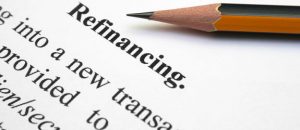
Having a mortgage means having options. As a mortgage approaches its expiration date, homeowners must decide whether they want to refinance their mortgage under new terms or renew under existing ones.
It’s important to know the difference between renewing and refinancing to determine the best course of action for your situation.
What is a mortgage renewal?
Renewing your mortgage is a straightforward process. If you owe money to the lender after your mortgage expires then you can simply opt to renew. Every term you negotiated and agreed to will remain in effect. All you have to do is sign on the dotted line.
What does it mean to refinance your mortgage?
If the idea of revamped mortgage terms appeal to you, then the option of refinancing is most likely a good fit. Refinancing allows you to gauge the different interest rates and amortization options that might be available to you.
Essentially, a refinanced mortgage is a completely different deal than your original mortgage. You don’t have to wait until the length of your mortgage expires. You can refinance at any time.
Refinancing can be appealing
Refinancing is a proven way to take advantage of lower interest rates. Refinancing can also be part of your strategy to pay off other debts, typically ones with higher interest rates like pay off credit cards debt.
A mortgage needs to fit into your finances and it doesn’t have to be a hindrance. One of the reasons a mortgage is fixed to a certain amount of years is to give both lenders and borrowers the flexibility to make it work.
A renewal date is an opportunity
As your renewal date approaches, you should audit your finances to review how they have changed from when you were first approved. If things are drastically different—you now earn more income, you have paid down a significant portion of your debt—than your mortgage should reflect that.
It’s all about securing the mortgage that is right for you. One that will help you maintain your lifestyle and pay off any necessary debts.

 What’s better than escaping the harsh Canadian winters to your own private villa in Mexico or a beach house in Miami? Or maybe it’s owning a cottage that your family can enjoy on weekends?
What’s better than escaping the harsh Canadian winters to your own private villa in Mexico or a beach house in Miami? Or maybe it’s owning a cottage that your family can enjoy on weekends? When applying for a loan, the application process and the lender’s checklist can be mysterious. Most borrowers recognize that factors like credit history, salary, debts, assets and price of home will play a part in whether you are approved or denied.
When applying for a loan, the application process and the lender’s checklist can be mysterious. Most borrowers recognize that factors like credit history, salary, debts, assets and price of home will play a part in whether you are approved or denied.